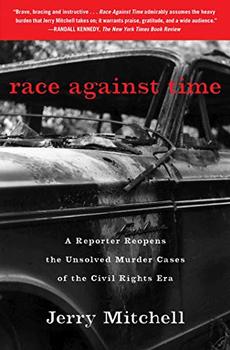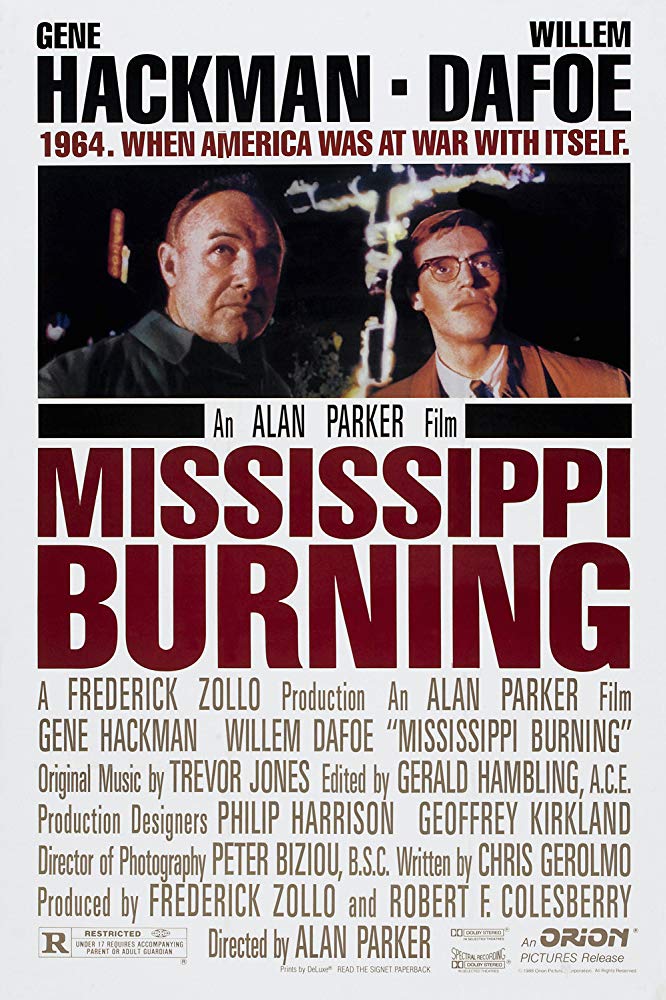Summary | Excerpt | Reviews | Beyond the Book | Read-Alikes | Genres & Themes | Author Bio

A Reporter Reopens the Unsolved Murder Cases of the Civil Rights Era
by Jerry MitchellThis article relates to Race Against Time
 In December 1988, the controversial crime-thriller movie Mississippi Burning was released. It follows two FBI agents — played by Gene Hackman and Willem Dafoe — who investigate the disappearance of three civil rights workers. The agents' efforts to solve the case are hindered by a hostile local police force and the Ku Klux Klan.
In December 1988, the controversial crime-thriller movie Mississippi Burning was released. It follows two FBI agents — played by Gene Hackman and Willem Dafoe — who investigate the disappearance of three civil rights workers. The agents' efforts to solve the case are hindered by a hostile local police force and the Ku Klux Klan.
Director Alan Parker and writer Chris Gerolmo loosely based the movie on the murders of Andrew Goodman, James Earl Chaney, and Michael Schwerner, which occurred in Neshoba County, Mississippi in 1964. These three civil rights activists belonged to the Council of Federated Organizations (COFO) and the Congress of Racial Equality (CORE). They joined Freedom Summer — also known as the Mississippi Summer Project — to participate in a direct action campaign of registering African American voters. It cost them their lives. According to the Student Nonviolent Coordinating Committee's (SNCC) archives, the activism of this summer resulted in six documented murders, plus four others critically wounded, 35 confirmed shootings, 80 people beaten and over 1,000 activist arrests.
Some reviewers felt the film captured the historical moment accurately — from cultural touchstones to the look of the town and the attitudes of the people — and the dialogue was deemed authentic. The cast were also praised for their stellar performances, and the film was nominated for seven Oscars and won Best Cinematography.
However, Mississippi Burning received formidable backlash. Released 24 years after the actual murders, it was contentious among audiences who still felt the trauma and anger of the brazen crimes. In real life, justice had not been served. The movie portrayed the graphic violence and brutality of the events and attitudes surrounding it, but a reviewer at the Chicago Reader argued it diverged too severely from "history, sociology, or even common sense." Charles Champlin from the Los Angeles Times declared that the movie failed audiences by diminishing the role of Black people in publicizing the case, pushing for answers, and generating a social movement. Instead, it glorified the white FBI agents, who were largely unhelpful in achieving justice or resolving the case. These critiques argued it was a dishonest portrayal of white heroism, a too-stark departure from the reality activists had suffered through.
When Mississippi's own Clarion-Ledger covered the movie premiere, they sent junior journalist Jerry Mitchell. He thought it would be a minor story, a welcome diversion from his daily courtroom reporting. By happenstance, at the premiere, seated beside Mitchell was Roy K. Moore, the head of the Mississippi division of the FBI in 1964. Behind special agent Moore were Jim Ingram, who led the FBI's civil rights desk in Mississippi that year, and Bill Minor, a journalist who had covered the murders when they happened. After talking to these men, along with press secretary Kevin Vandenbroek, who nudged him to look into the statute of limitations, Mitchell began digging into the story. He writes about this and other cases he worked on in Race Against Time.
Mississippi Burning film poster, courtesy of IMDB
Filed under Music and the Arts
![]() This "beyond the book article" relates to Race Against Time. It originally ran in March 2020 and has been updated for the
February 2021 paperback edition.
Go to magazine.
This "beyond the book article" relates to Race Against Time. It originally ran in March 2020 and has been updated for the
February 2021 paperback edition.
Go to magazine.
Your guide toexceptional books
BookBrowse seeks out and recommends the best in contemporary fiction and nonfiction—books that not only engage and entertain but also deepen our understanding of ourselves and the world around us.